All 13 LGBTQ+ members of Congress, from Tammy Baldwin to George Santos

The United States Congress is currently the queerest its ever been. Clockwise from top left: George Santos, Richie Torres, Kyrsten Sinema, Tammy Baldwin (Getty)
The United States Congress is currently the queerest its ever been, with 13 LGBTQ+ members of Congress.
There are currently 11 LGBTQ+ house representatives and two LGBTQ+ senators.
There’s no denying it’s still a small number, given that there are 435 seats in the House and 100 in the Senate – but considering there have only ever been 33 known LGBTQ+ members of Congress in history, it represents progress.
Here’s a brief run-down of all 13 LGBTQ+ Congress members.
1. Tammy Baldwin – Senator from Wisconsin
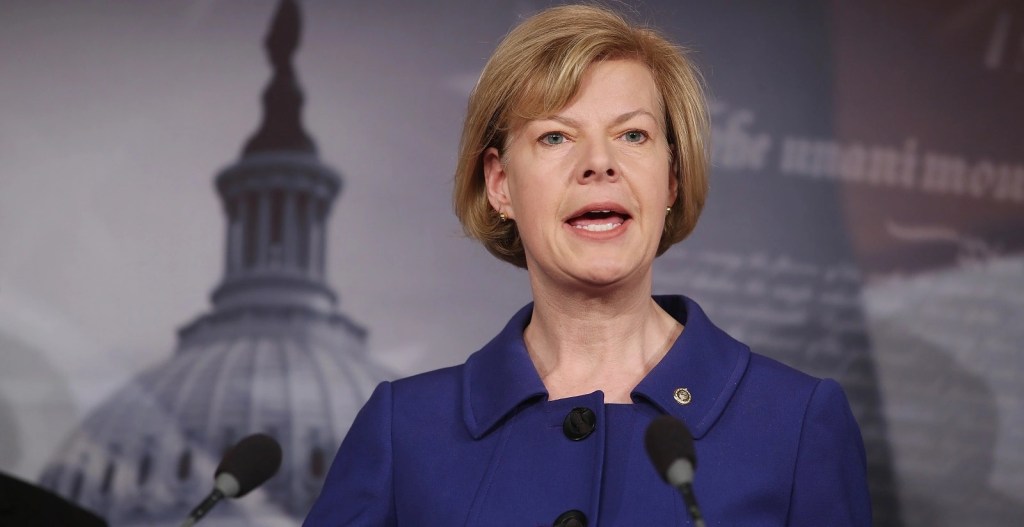
In 1999, Tammy Baldwin was the first out LGBTQ+ woman elected to the House of Representatives.
In 2013, she became the first out LGBTQ+ person elected to the Senate (Harris Wofford had served as a senator from 1991 to 1995, but did not come out as LGBTQ+ until 2016, aged 90).
Baldwin is known for being one of the senators who helped get the Respect for Marriage Act, which protects same-sex marriage, passed with bipartisan support last year.
On her website, she makes it clear that she is an advocate for LGBTQ+ rights, but notes she did not run for the Senate to make history.
“I ran to make a difference,” she states.
The lesbian senator says she wants to “promote tolerance and fight discrimination”, going on to highlight how more than half of states in the US have “little to no protections for discrimination on the basis of sexual orientation”.
In 2008, she formed the Congressional LGBTQ+ Equality Caucus, which aims to advance LGBT+ rights.
2. Kyrsten Sinema – Senator from Arizona

Kyrsten Sinema is bisexual, and was the second out LGBTQ+ woman elected to the House and the Senate, in 2012 and 2018 respectively.
She was a member of Democratic Party but became an independent in December 2022. While she caucuses with her former party, she prides herself on her independence.
As a democrat she was known for going against party line.
That includes in 2019 when Nancy Pelosi launched an impeachment inquiry into Donald Trump, Sinema was the only LGBTQ+ member of Congress at the time to not explicitly support the move.
However, during Trump’s two impeachment trials she did ultimately vote to convict him.
In 2022, she was labelled the type of white person that “Martin Luther King Jr warned us about” by a The Nation correspondent after blocking the Democrats from passing sweeping voting rights legislation.
3. David Cicilline – House representative for Rhode Island’s 1st congressional district
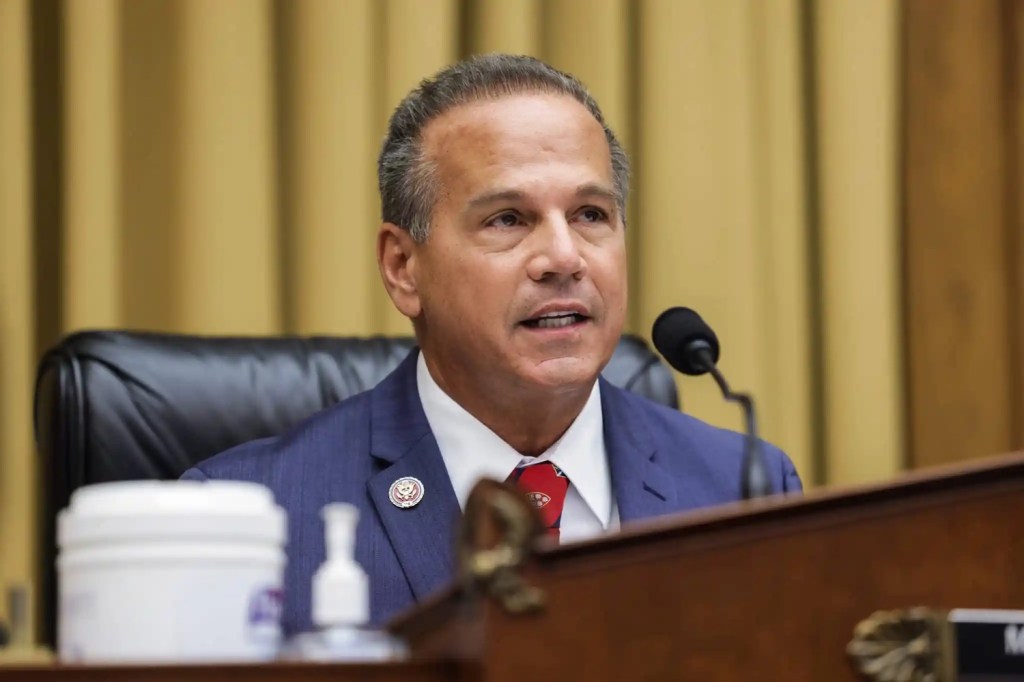
Among the 11 LGBTQ+ people serving in the House, David Cicilline has been there the longest – heading to Capitol Hill in 2011, having previously been the mayor of his home town, Providence, in Rhode Island.
Cicilline, who is gay, originally introduced the Equality Act in 2015, which aims to prohibit sex and gender-based discrimination. However, it never got past committee stages.
Cicilline reintroduced the bill again in 2021, and it passed the House. However, it has been sitting with the Senate’s Judiciary Committee for almost two years. During Pride in 2022, president Joe Bide urged lawmakers to pass the bill.
Cicilline was chairman of the Equality Caucus in the previous Congress term.
4. Mark Pocan – House representative for Wisconsin’s 2nd congressional district

Mark Pocan, who is gay, was elected to the House of Representatives after Tammy Baldwin vacated the seat and moved to the Senate.
In a 2012 blog post for Our Lives, a local LGBTQ+ media outlet in Wisconsin, Pocan revealed when he was aged 23 he was beaten by someone with a baseball bat after leaving a gay bar, called a string of names including the “F” slur, and left unconscious and bloody on the street.
He said that was a pivotal moment in his life and he decided we would do “everything” he could “so that something like that would never happen again to anyone”.
That started his road into politics (the blog post was made months before he was elected to the House but since 1999 he had been part of the Wisconsin State Assembly).
Pocan is the new chairman of the Equality Caucus, something he says is an honour.
In a press release announcing his new position, Pocan said the caucus is needed to “forcibly push back against and defeat” the rising anti-LGBTQ+ “hate, legislation and violence” in the US.
“We will also continue to push forward a positive vision for full inclusivity and equality of LGBTQI+ people in this country,” he added.
5. Mark Takano – House representative for California’s 41st congressional district
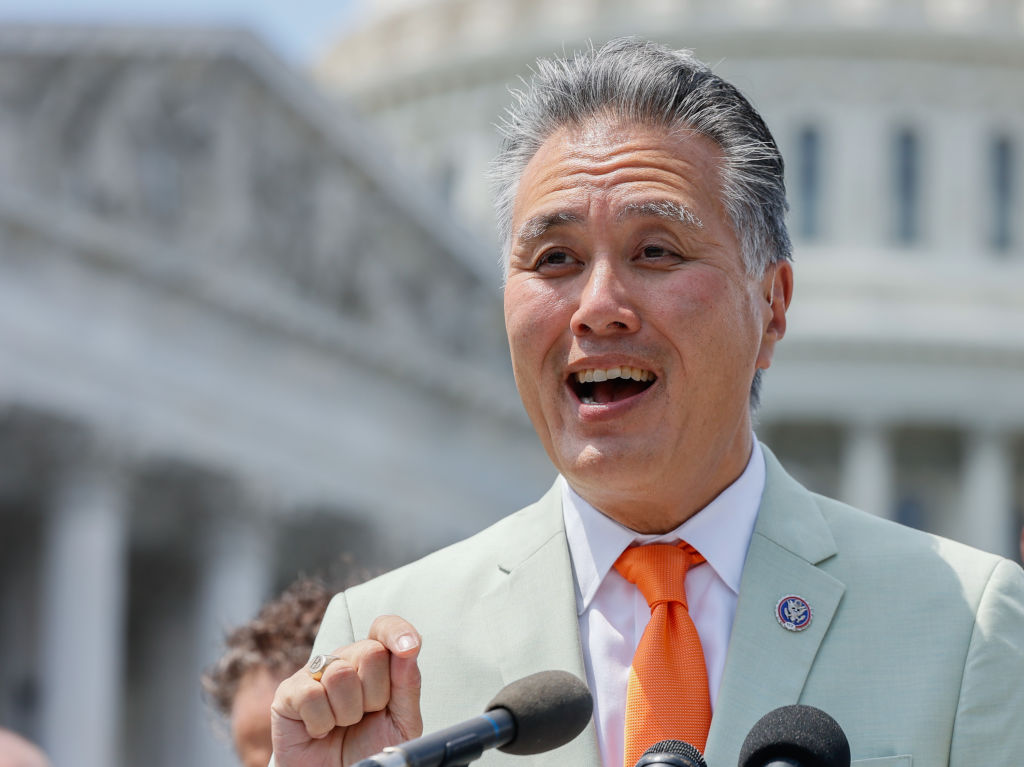
Mark Takano was elected to the House of Representatives in 2013, the same year as Mark Pocan.
In doing so, he became the first non-white out LGBTQ+ member of Congress.
He was publicly outed during his unsuccessful 1994 campaign for Congress, when a politician told a church group he was a “homosexual liberal”, which made headlines. His opponent, Ken Calvert, who eventually won, then sent out lavender and pink mail shots with Takano’s photo on them.
During the Supreme Court’s debate to legalise same-sex marriage, in 2015, Takano is quoted as saying he felt “a little sad” for those opposing it.
On the 10th anniversary on the repealing of “Don’t Ask, Don’t Tell”, a law that allowed lesbian, gay, bisexual and queer people to service in the military as long as they concealed their sexual orientation, Takano spoke out about the “damaging and lasting effects” it had “on thousands of service members”.
He said: “It must be our utmost priority to fight back against the discrimination of any member of the LGBTQ+ community, and strive for an inclusive military.”
6. Angie Craig – House representative for Minnesota’s 2nd congressional district
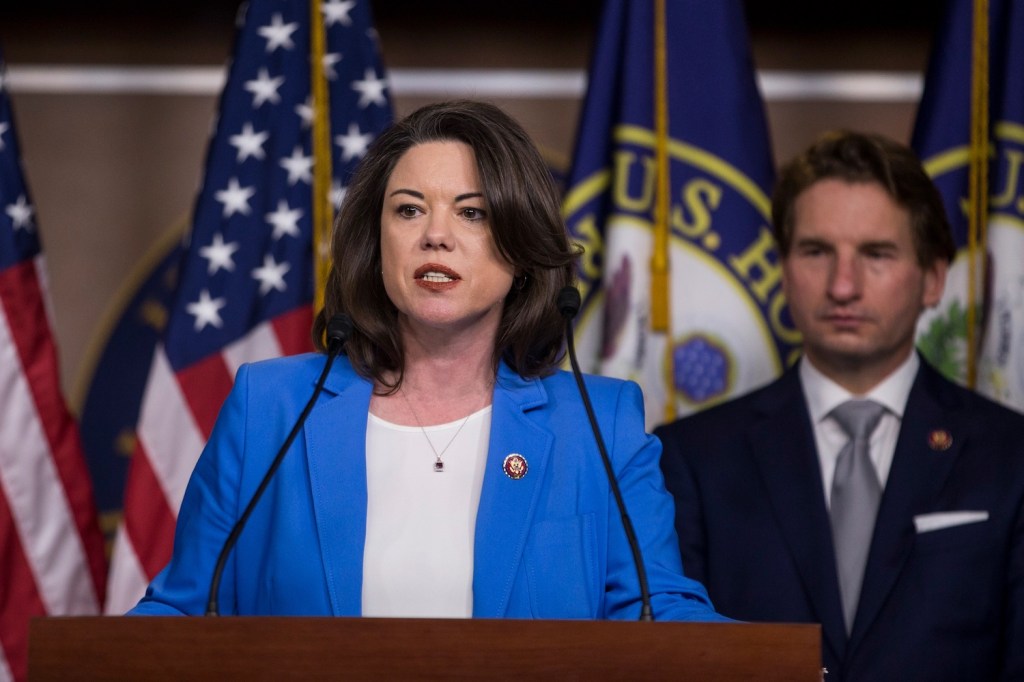
Angie Craig became Minnesota’s first out LGBTQ+ member of Congress when she entered the House of Representatives in 2019.
She was one of four sworn in that year, that group being the first openly LGBTQ+ to be elected in six years.
Craig, who is lesbian, is one of the co-sponsor’s of David Cicilline’s Equality Act.
She also introduced the Every Child Deserves a Family Act, which is designed to end discrimination towards LGBTQ+ people in foster care and adoption.
“No state should allow discrimination against LGBTQ foster children or adoptive parents who can provide a safe and loving home,” she said at the time.
The bill has not yet progressed further than being introduced to the House.
Craig has four children, making her the first out lesbian mother in Congress.
7. Sharice Davids – House representative for Kansas’ 3rd congressional district
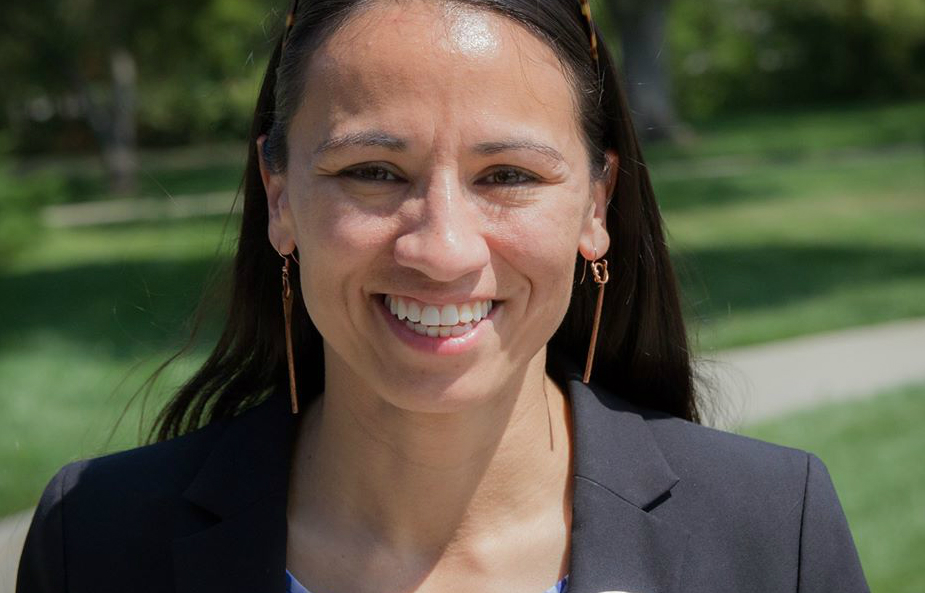
Sharice Davids, who is lesbian, became the first known LGBTQ+ Native American woman to be elected to Congress.
She was part of the 2019 cohort of four LGBTQ+ people elected that year.
That same year she was named as one of Queerty’s Pride50 for “making a name for herself in Congress, fighting for equality”.
During her election campaign, she was a target of Republicans, including a local precinct committeeman who branded her a “radical socialist kickboxing lesbian Indian” that would “be sent back pack to the reservation”.
Her supporters were also targeted, with a lesbian couple in Kansas sent an anonymous letter questioning their support for Davids.
8. Chris Pappas – House representative for New Hampshire’s 1st congressional district
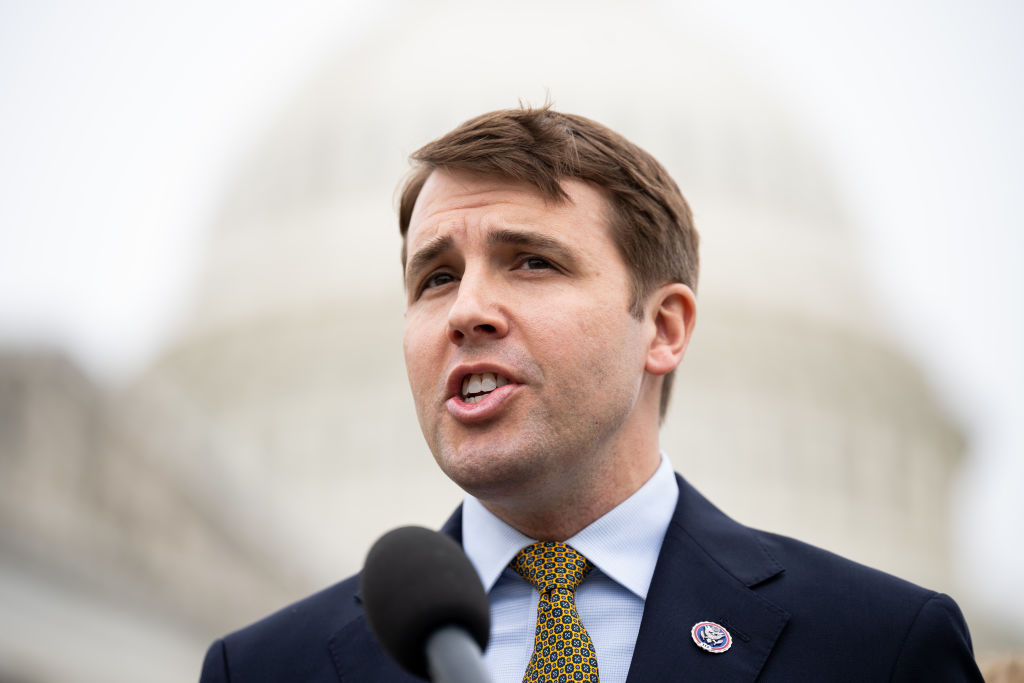
Chris Pappas was the only out LGBTQ+ male to enter Congress in 2019, where he became the first out gay man to represent New Hampshire.
His campaign website states he’s “committed to fighting for the dignity and equality of all Americans”, wanting to get the Equality Act signed into law and standing up against “nationwide efforts to roll back the progress made by the LGBTQ community”.
Pappas became engaged to his partner, Vann Bentley, in 2021.
Their relationship was under the spotlight previously when, during the 2020 election campaign, a Republican nominee revealed Bentley had served as a lobbyist for Amazon until November 2019, which would have needed to have been disclosed.
As reported by Advocate, it’s unclear if they were dating at the time and Pappas said he was told by the House Ethics Committee he did not have to register the relationship.
9. Ritchie Torres – House representative for New York’s 15th congressional district
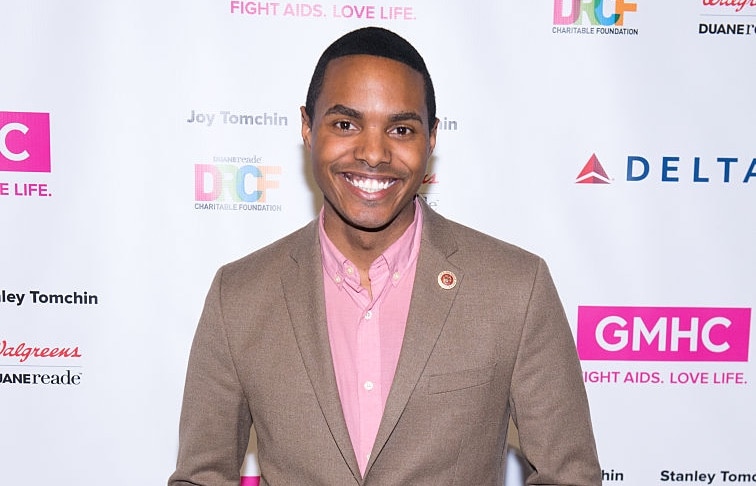
Ritchie Torres was one of two out LGBTQ+ people elected to Congress in 2021, and was also the first ever LGBTQ+ Afro-Latino congressman.
Getting there was not an easy path. He had to face down an anti-LGBTQ+ preacher, as well as homophobic attacks from a police union official who referred to him as a “first-class whore”.
Prior to entering the House, Torres had been a member of the New York City Council, for the 15th district.
When he was elected to the council in 2014, aged 25, he was the its youngest member and the first out gay person elected to legislative office in the Bronx, which the 15th district partly covers.
As a city councillor, Torres secured funding for the Bronx’s first LGBTQ+ senior centre.
Ensuring LGBTQ+ services are tailored appropriately for youth and elders is something he advocates for, as well as ensuring LGBTQ communities of colour get a “fair share” of resources.
Torres calls himself “a product of the Bronx” who was raised by a single mother in a leaky housing project.
10. Becca Balint – House representative for Vermont’s at-large district
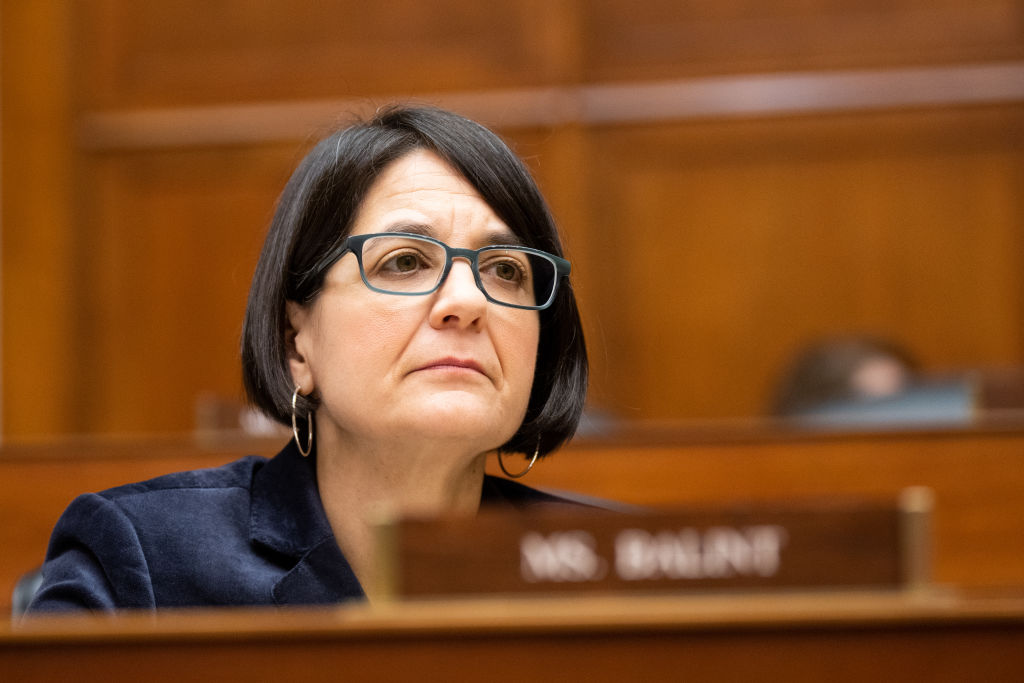
Becca Balint is one of four out LGBTQ+ House representatives elected in 2022, for the 2023 term.
Vermont’s first LGBTQ+ person to represent the state in Congress, Balint is also its first female. Vermont was the last state to elect a woman to Congress.
Prior to Congress, Balint had been a member of the Vermont Senate since 2015, eventually becoming its president pro tempore, the senate’s third-highest position. She was the first woman and LGBTQ+ person in that role.
She says she is a person with a “deep sense of empathy for people on the margins” because she is gay and her grandfather was killed in the Holocaust.
11. Robert Garcia – House representative for California’s 42nd congressional district
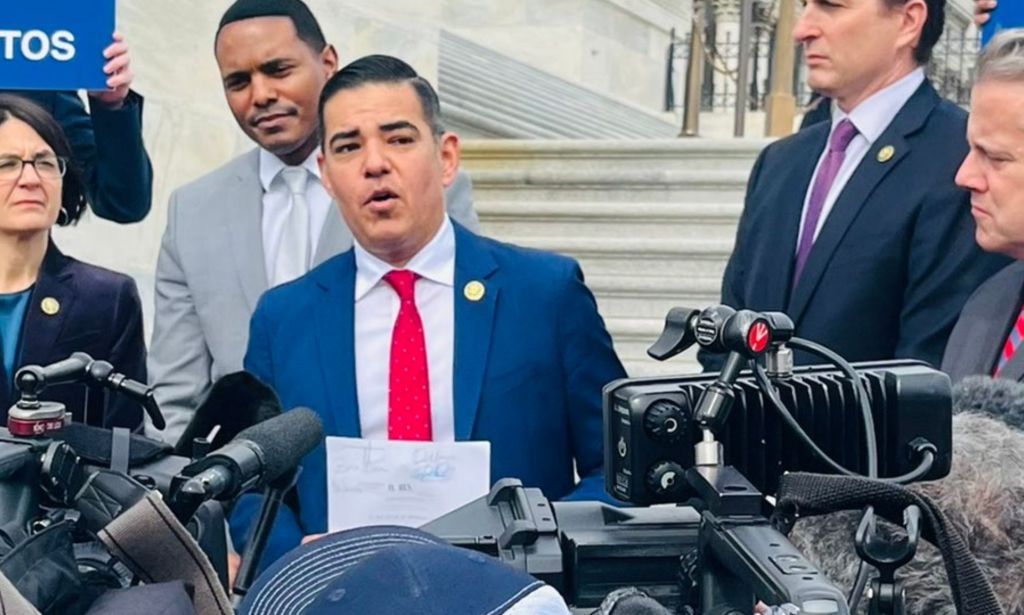
Robert Garcia spent eight years as the mayor of Long Beach, California, before being elected to Congress in the 2022 elections.
He had joined Long Beach City Council in 2009. On becoming mayor in 2014, he was the city’s youngest, first Latino and first elected out LGBTQ+ mayor.
In Congress, he is one of its first two fully Latino LBGTQ+ members (the other being George Santos) as well as the first LGBTQ+ immigrant.
In Congress, Garcia wants to strengthen federal protections for LGBTQ+ Americans.
He highlights that, as mayor, he increased access to STD checks and treatments in Long Beach, and established trans-inclusive health care coverage in the city.
12. Eric Sorensen – House representative for Illinois’s 17th congressional district
Eric Sorensen, who is gay, is the first out LGBTQ+ person from Illinois to be elected to Congress, having been voted in during the 2022 elections and assuming office at the start of 2023.
Prior to entering the House of Representatives, he worked as a meteorologist for various TV stations in Texas and Illinois from 1999 until 2021.
Having come out while studying at university, receiving “tremendous support” from family and friends, Sorensen then moved to Texas, where his dad told him things would be “different”, Sorensen states on his campaign website.
He says he was discriminated against in his first television job. “I was called into my boss’ office with a copy of my contract sitting on the desk and the “moral clause” highlighted. I was told that I couldn’t be gay and work there.”
Sorensen says he “will work to fight any discrimination in health care that members of the LGBTQ community face”.
Previously, he was on the board of LGBTQ+ organisations The Project, and Clock Inc, and uses social media to speak in favour of LGBTQ+ rights.
13. George Santos – House representative for New York’s 3rd congressional district
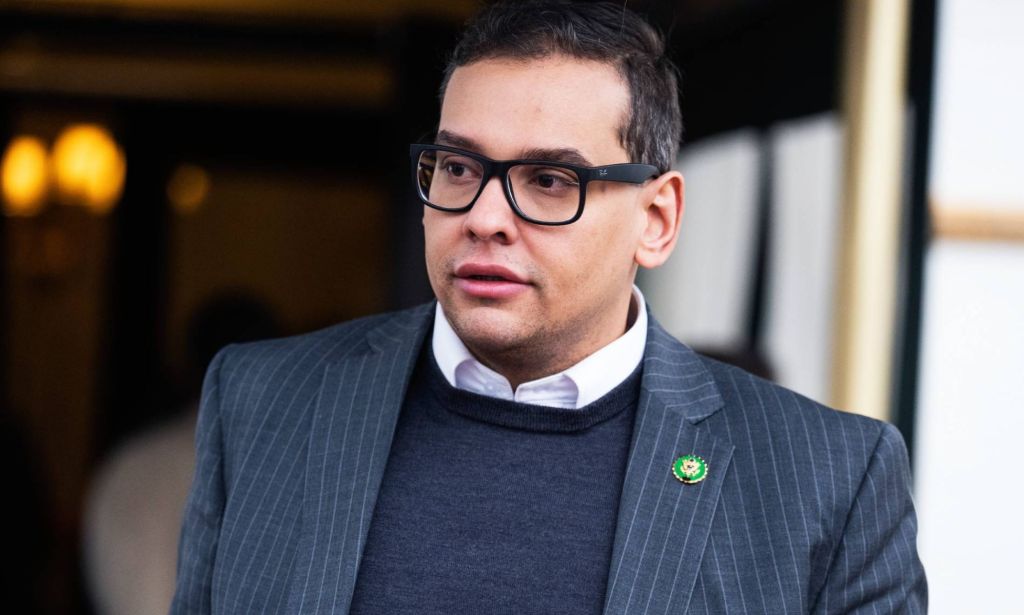
George Santos is the first Republican voted into Congress while being out as gay, and is one of its first two fully Latino LGBTQ+ members – though it remains to be seen how long he’ll survive.
He truly made a name for himself throughout his 2022 election campaign and that ball hasn’t stopped rolling since he entered office.
For starters, he lied about his educational background, religion and work history during his election campaign.
He’s also faced fraud allegations and is the subject of a reopened criminal fraud case in Brazil, where he is accused of using a stolen chequebook and false name.
Santos also claimed his mother died because in the 9/11 attacks, but according to a New York Times article, she died in 2016, with no terrorist involvement.
He eventually admitted to having dressed in drag, but denied being a drag queen, after alleged images of him in drag, under the moniker Kitara Ravache, were shared online.
Amid all this, and various other scandals, Santos is now the subject of an official bid to remove him from Congress, spearheaded by fellow LGBTQ+ congressman, Robert Garcia.

